
Stress Causes Pimples or Acne - Get Online Stress Pimples Or Breakout Treatment from Expert Dermatologists
Introduction
Hello all, I myself Dr. Karma Patel. I am a dermatologist with a special interest in tele-dermatology. Over the years, we’ve consulted many patients online who have acne or pimples due to stress.
Does Stress Cause Pimples? Here's What You Need to Know
Many people often wonder: "Can stress really cause pimples?"
If you’ve been facing frequent breakouts and are questioning whether stress might be the reason, you’re not alone. Common questions we hear include:
Can you get pimples from stress?
I have a face full of pimples - could it be due to stress?
Is there a link between stress and acne?
If these concerns sound familiar, don’t wait. At neodermatologist.com, you can consult with our expert dermatologists from the comfort of your home. If you suspect your pimples are stress-related, our board-certified dermatologists can help you identify the cause and provide the right treatment through our acne treatment online consultation service.
We specialize in diagnosing and treating acne and pimples virtually, offering personalized care and solutions - no clinic visit required.
Now, let’s dive into the blog to understand why stress can lead to pimples and when it’s the right time to consult a dermatologist for stress-related pimple treatment.
What Are Pimples (Acne)? Understand Stress-Related Breakouts
Acne/pimple is a skin condition, usually appearing on the face, chest, or back, that causes enlarged pores, inflammation, and redness. Acne/pimple outbreaks result from blockages in the opening of the hair follicle due to excessive oil production (sebum) and bacterial growth. Stress can trigger an increase in hormones that leads to such a blockage as well as increased sebum (oil) production. While acne/pimples is typically linked to clogged pores and hormones, there is also a significant connection between stress and pimples. In fact, studies show that both short-term and long-term stress causes pimples or triggers acne flares. Read on for more information on the relationship between stress and pimples.
How Stress Causes Pimples and Triggers Breakouts on the Face
Acne, or pimples, can develop due to several factors such as hormonal changes, genetics, skincare habits, and overall lifestyle. However, one often underestimated contributor to acne flare-ups is stress. Whether it's short-term stress before an event or ongoing emotional pressure, stress can significantly impact your skin’s health - especially on the face and forehead, where oil glands are more active.
A "stress pimple" is essentially acne triggered or worsened by emotional or physical stress. If you notice breakouts during exams, before important meetings, or during emotionally intense periods, you might be dealing with stress-induced acne.
When you're under acute or chronic stress, your body produces higher levels of cortisol, the primary stress hormone. This hormonal surge stimulates the sebaceous (oil) glands in your skin to produce more sebum. Excess oil can clog pores and trap bacteria and dead skin cells inside, which leads to inflammation, blackheads, whiteheads, and painful pimples.
To know more about the pimple types, click on the blog post here - Types of Pimples (Zits)
Stress pimple areas: Stress pimples commonly appear on the face, forehead, chest, back, and sometimes even on the lips or legs due to hormonal changes and excess oil production.
Moreover, research shows that acne heals more slowly when the body is under stress. This means not only do breakouts become more frequent, but they also linger longer and are more prone to inflammation and secondary infections. You may notice more visible pimples at once, as new breakouts appear while existing ones take extra time to heal.
If your daily routine includes persistent or recurring stressors, you may find yourself struggling with chronic acne breakouts. Addressing both the physical symptoms and the root cause - like stress management - can be key to clearer, healthier skin.
Understanding this connection is the first step toward managing it. If you believe your acne might be linked to stress, consider speaking to a dermatologist for personalized guidance and treatment.
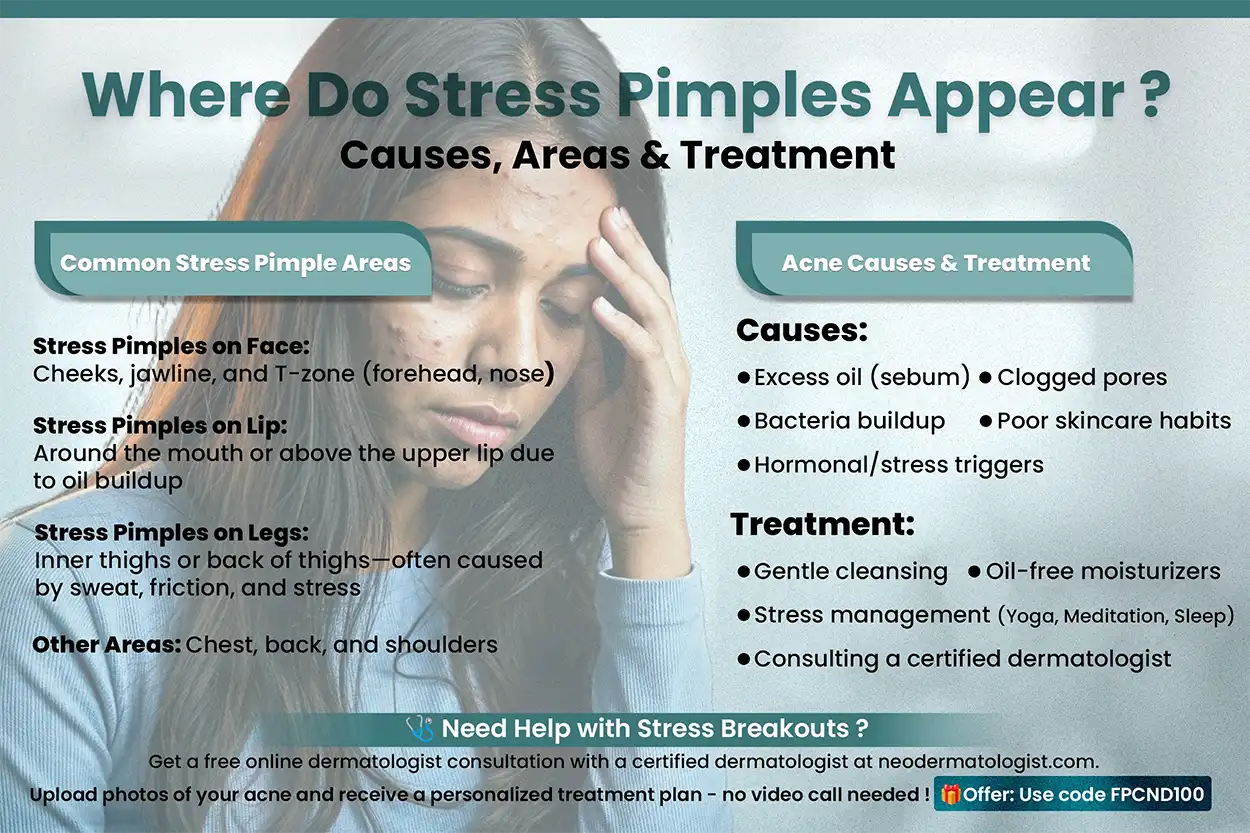
Identifying Acne Triggers: Are Your Pimples Caused by Stress?
It’s important to be aware of the factors that may trigger or worsen your acne - stress being one of the most common. Recognizing these triggers is the first step toward effective acne management.
If you suspect your breakouts are stress-related, observe your daily routine. Are you frequently over-scheduling yourself, multitasking excessively, or neglecting self-care? These stressors can lead to hormonal changes in the body, which in turn increase oil production and worsen acne.
To reduce the chances of stress-induced pimples, consider adopting stress management strategies such as:
- Practicing meditation and deep breathing exercises
- Regular physical activity or yoga
- Maintaining a healthy and balanced diet
- Ensuring adequate, restful sleep
- Taking short breaks and carving out personal time
- Talking to close friends or loved ones about your concerns
- Journaling or practicing problem-solving techniques
Developing positive coping mechanisms can help keep your stress levels in check and support clearer skin over time.
If you’ve been trying to manage stress-related acne and aren’t seeing improvement, it’s best to consult a skin specialist. At neodermatologist.com, we are a team of board-certified dermatologists with years of experience in treating acne and pimples through virtual consultations. We’ve successfully treated over 20,000 acne patients online.
Our experts don’t just treat acne - they educate you about the root causes, including whether your pimples are stress-related, and provide detailed dos and don’ts to support your healing journey.
When Should You Consult a Dermatologist If Pimples are Caused by Stress?
If you’re unsure whether your breakouts are caused by stress, here are some signs that it’s time to consult a dermatologist:
- Your acne worsens noticeably during periods of emotional stress or pressure.
- Pimples take longer to heal and keep returning despite basic skincare.
- You experience painful or inflamed breakouts on the face, forehead, or jawline.
- Stress reduction techniques help you feel better, but your skin doesn’t improve.
- You’re unsure whether your breakouts are due to stress, diet, or hormonal imbalances.
- Over-the-counter products and home remedies have failed to show results.
A dermatologist can accurately identify the cause of your acne and create a treatment plan tailored to your skin and lifestyle. At Neodermatologist - your online dermatology consultation, we specialize in online acne care - so you can get expert guidance and personalized treatment from the comfort of your home.
For instant chat, click below to connect with SkinMate, your AI-Powered Dermatology Nurse:
Start an instant WhatsApp chat now! Worried about it being stress-related acne? Consult a certified dermatologist instantly on WhatsApp with SkinMate - your AI Dermatology Assistant.
So, Worried about your acne or stress-related pimples?
- Simply upload clear photos of your breakout.
- Get a free, personalized prescription and treatment plan reviewed by certified dermatologists.
- Fast, accurate, and completely online.
Offer: Use code FPCND100 to claim your free dermatologist photo consultation today!
Conclusion:
Stress can play a major role in triggering or worsening acne across various areas of the body - from the face and forehead to the lips and even the legs. Understanding these stress-related patterns and taking timely action, including expert consultation, can help you manage and treat breakouts more effectively.
Looking for a different online dermatologist service? Explore our specialized treatments:
Hair Loss Treatment, General Skin Consultation, Itching in Private Areas, Vitiligo Treatment, Psoriasis Treatment, Scabies Treatment, Urticaria (Hives) Treatment, and Ringworm Treatment.
Prefer reading in Hindi? If you are a Hindi reader and want to read this blog post in Hindi, click here - कील मुंहासे के लक्षण तनाव.
To check out our other acne-related blogs, both in Hindi and English, click on the links given below
1. Understanding and treating acne
3. Acne and Diet - Pimple Causing Foods
4. How to Remove Pimples and Marks at Home
6. मुँहासों को समझना और उनका इलाज करना
7. मुंहासे कितने प्रकार के होते हैं
I hope the information given was helpful.
Thank you
MD (Dermatology) | Registration No.: G-53014
A dermatologist specializing in online consultations for skin, hair, and nail concerns. Offers expert care for acne, pigmentation, eczema, scabies, ringworm, scalp infections, dandruff, psoriasis, vitiligo, hives, and hair loss, providing effective, personalized treatment solutions from the comfort of home.
 Hin
Hin En
En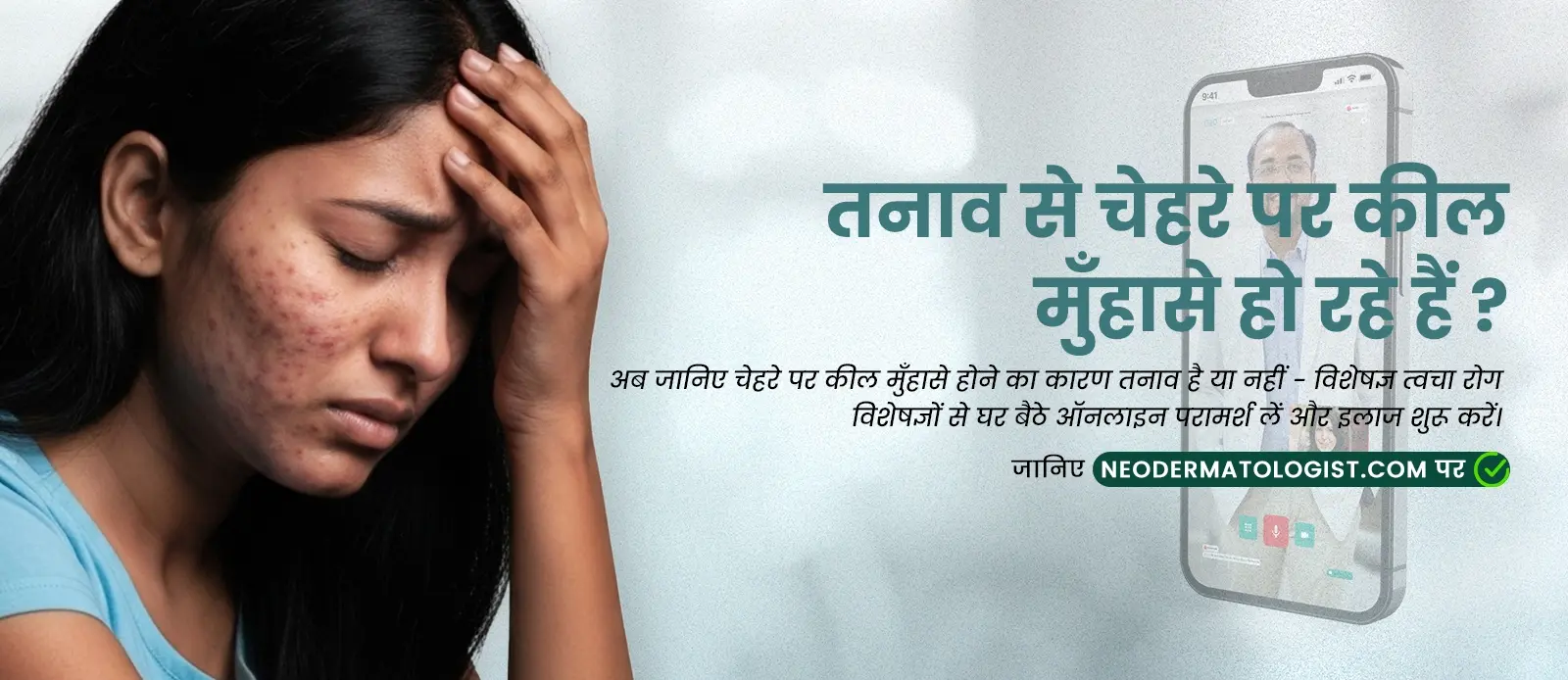
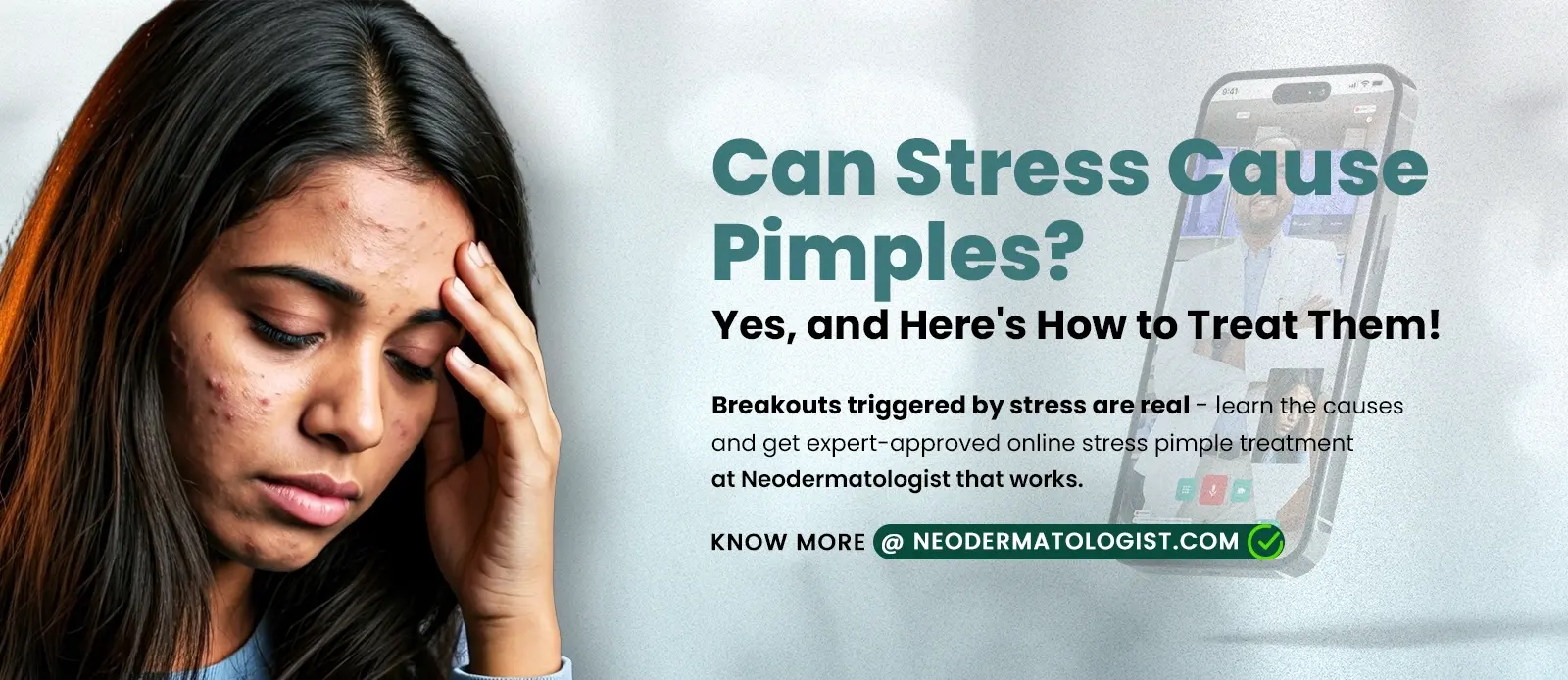






















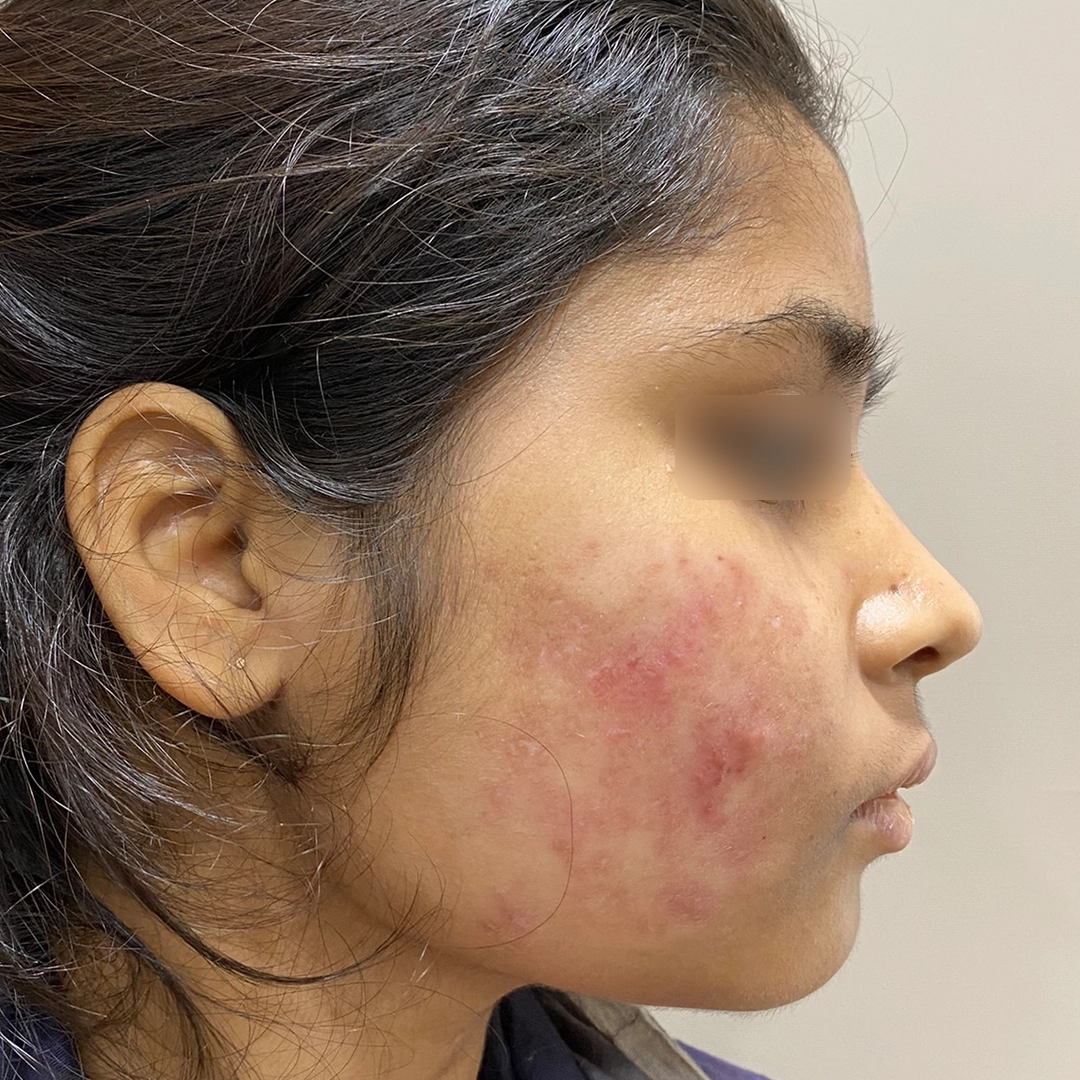
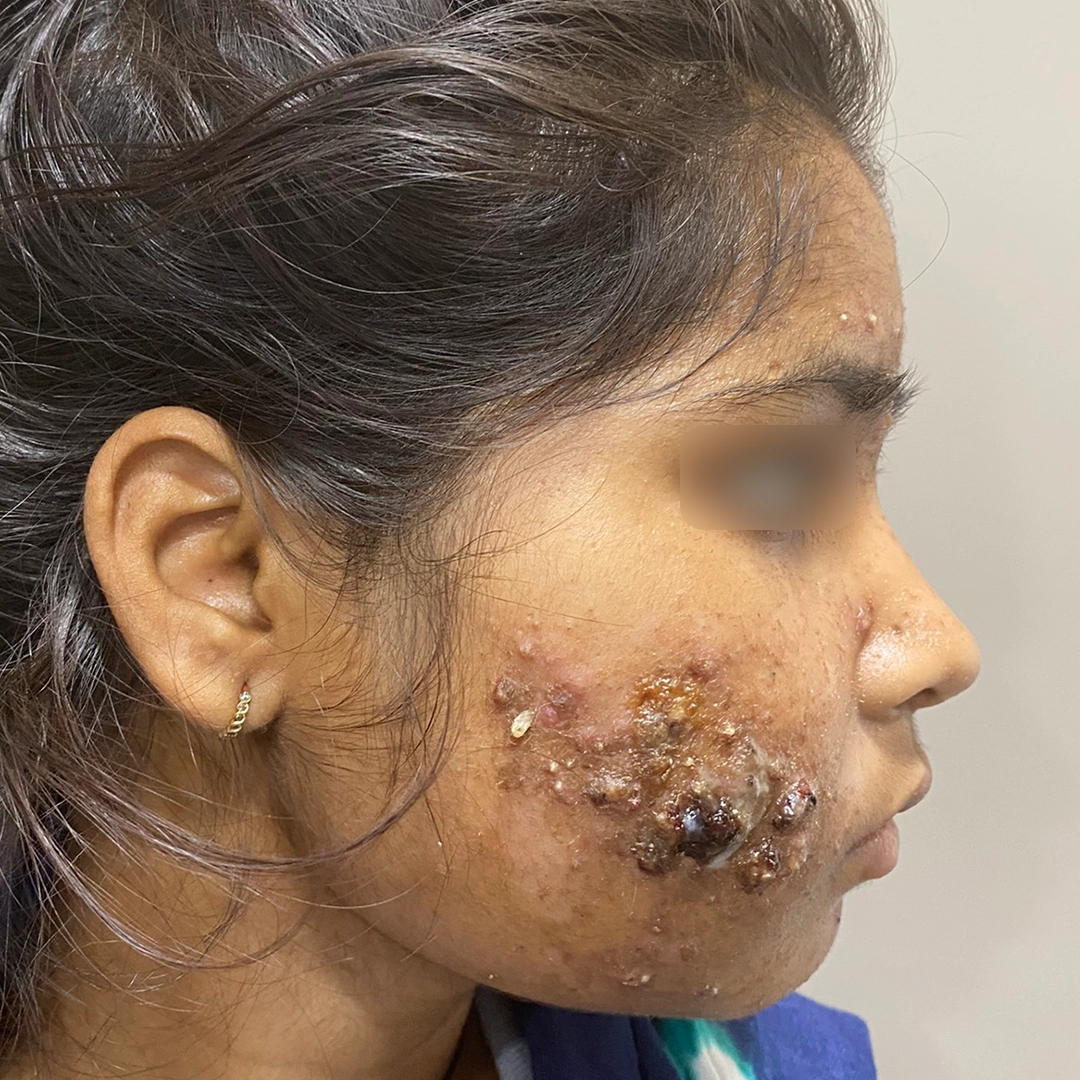



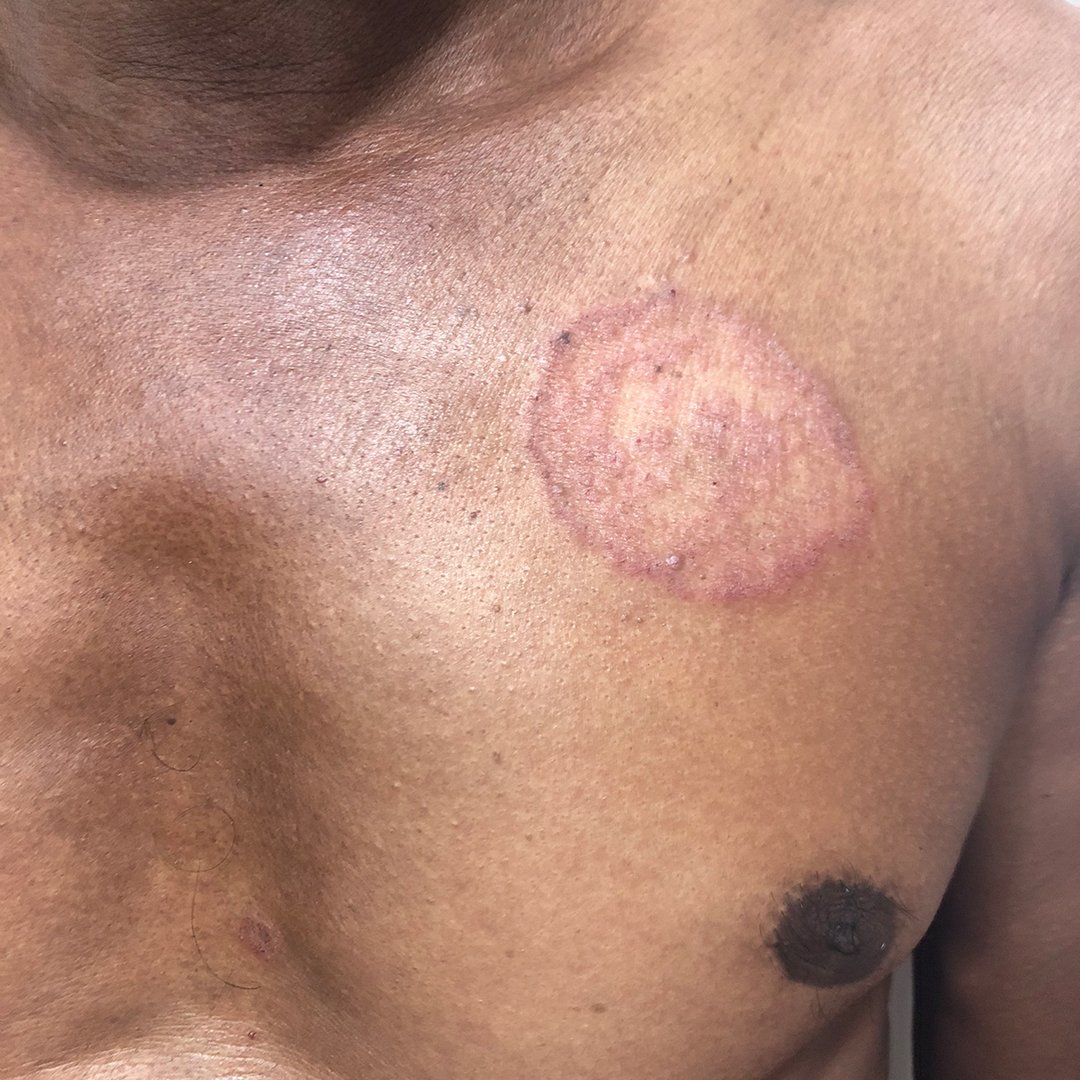
Comments
Jay Patel
ये ब्लॉग पढ़कर लगा कि स्किन की सही देखभाल सिर्फ क्रीम से नहीं होती, तनाव भी कंट्रोल करना ज़रूरी है। NeoDermatologist का ये ब्लॉग बहुत हेल्पफुल था। मैं पहली बार ऑनलाइन डर्मेटोलॉजिस्ट कंसल्टेशन लेने जा रही हूँ - उम्मीद है फायदा होगा
Riya Kapoor
This article perfectly explains the link between stress and acne. I’ve always noticed breakouts before exams or deadlines but never understood the reason. Thank you for providing such clear insights and tips, especially the section on cortisol and sleep. Really helpful.
Post a comment